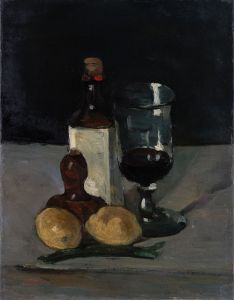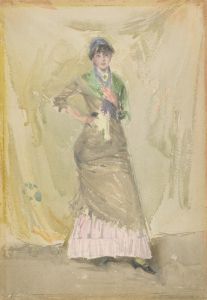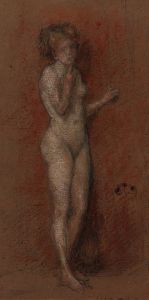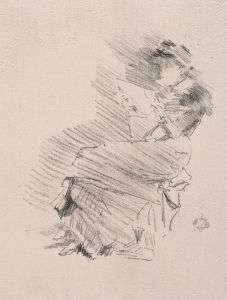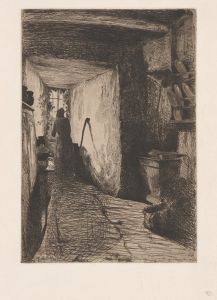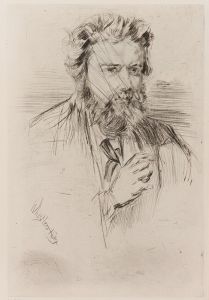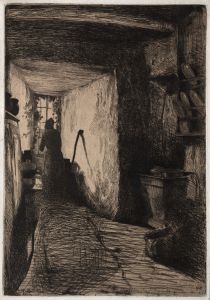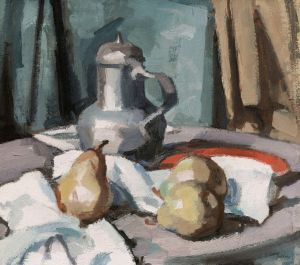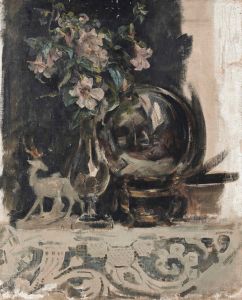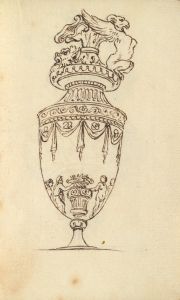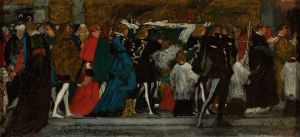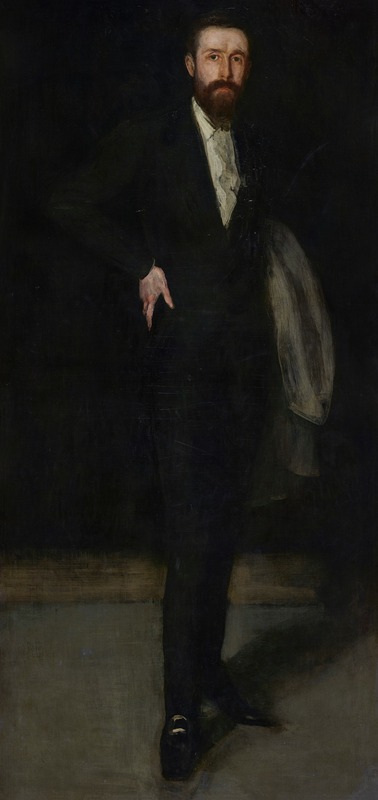
Arrangement in Black; Portrait of F. R. Leyland
A hand-painted replica of James Abbott McNeill Whistler’s masterpiece Arrangement in Black; Portrait of F. R. Leyland, meticulously crafted by professional artists to capture the true essence of the original. Each piece is created with museum-quality canvas and rare mineral pigments, carefully painted by experienced artists with delicate brushstrokes and rich, layered colors to perfectly recreate the texture of the original artwork. Unlike machine-printed reproductions, this hand-painted version brings the painting to life, infused with the artist’s emotions and skill in every stroke. Whether for personal collection or home decoration, it instantly elevates the artistic atmosphere of any space.
"Arrangement in Black; Portrait of F. R. Leyland" is a painting by the American-born, British-based artist James Abbott McNeill Whistler. Completed in 1870, this portrait is one of Whistler's notable works, showcasing his distinctive style and approach to portraiture. The subject of the painting, Frederick Richards Leyland, was a prominent English shipping magnate and art patron, known for his support of the Pre-Raphaelite Brotherhood and his own extensive art collection.
Whistler's portrait of Leyland is part of his series of "arrangements," where he emphasized the harmonious balance of color and form over the traditional focus on the subject's identity or narrative. In this particular work, Whistler employs a predominantly black palette, which is characteristic of his interest in tonal harmony and subtle gradations of color. The painting reflects Whistler's belief in "art for art's sake," a philosophy that prioritizes aesthetic experience over representational accuracy or storytelling.
The composition of "Arrangement in Black; Portrait of F. R. Leyland" is simple yet sophisticated. Leyland is depicted seated, dressed in formal attire, with a contemplative expression. The background is understated, allowing the viewer's attention to remain on the subject. Whistler's use of black is not merely a representation of Leyland's clothing but serves as a vehicle to explore the interplay of light and shadow, creating depth and texture within the limited color scheme.
Whistler's relationship with Leyland extended beyond this portrait. Leyland was a significant patron of Whistler's work and commissioned him for several projects, including the famous "Peacock Room," an opulently decorated dining room in Leyland's London home. However, their relationship eventually soured due to disagreements over the cost and artistic direction of the Peacock Room, leading to a dramatic falling out between the artist and his patron.
"Arrangement in Black; Portrait of F. R. Leyland" is housed in the Freer Gallery of Art in Washington, D.C., part of the Smithsonian Institution. The gallery holds an extensive collection of Whistler's works, thanks to the bequest of Charles Lang Freer, an American industrialist and art collector who was a great admirer of Whistler's art. Freer's collection includes paintings, prints, and drawings, providing a comprehensive view of Whistler's artistic development.
This portrait exemplifies Whistler's innovative approach to portraiture and his commitment to aesthetic principles. It also highlights the complex interplay between artist and patron, a recurring theme in the history of art. Whistler's ability to capture the essence of his subjects while maintaining his artistic vision is evident in this work, making it a significant piece in the study of 19th-century art.
Overall, "Arrangement in Black; Portrait of F. R. Leyland" is a testament to Whistler's mastery of color and form, as well as his influence on the evolution of modern art. The painting remains an important part of Whistler's oeuvre and continues to be appreciated for its artistic and historical significance.





